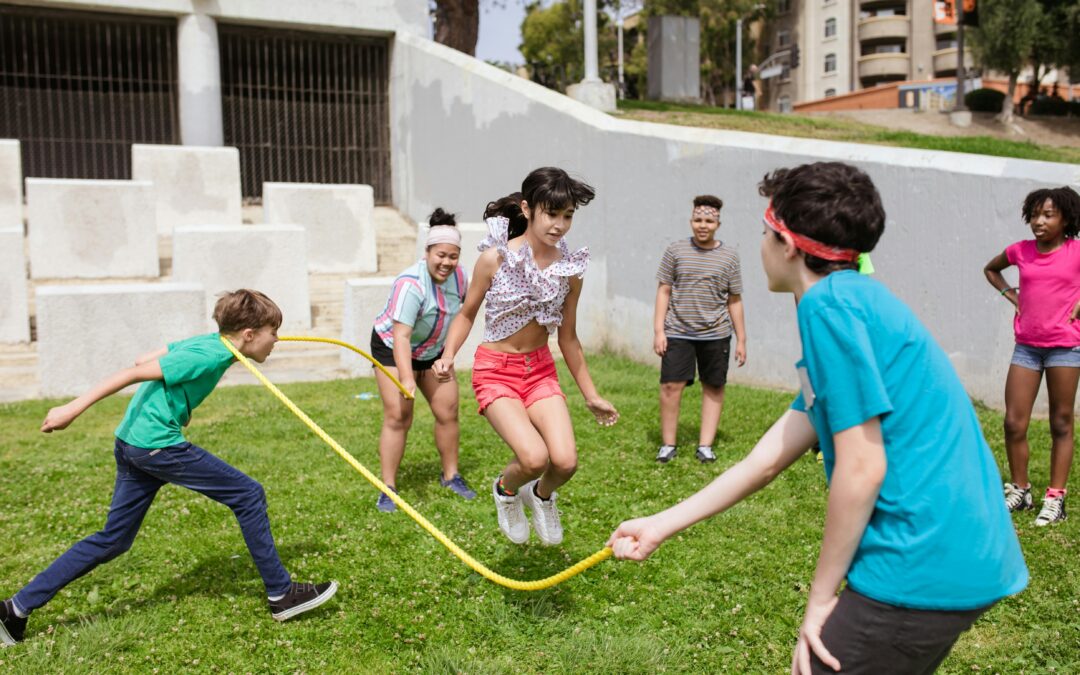If you are a parent with a neurodiverse child attending camp this summer, this detailed checklist is designed to help ensure a smooth and enjoyable experience for both you and your child. From preparation at home to communication with camp staff, these steps will help your child feel ready and excited for their camp adventure.
Start with Preparing Your Camper at Home
- Visit the Camp Beforehand Arrange a visit to the camp with your child before the actual camp session begins. This will help familiarize your child with the environment, facilities, and staff, alleviating any anxiety they may have about the unknown aspects of camp life.
- Communicate with Camp Staff Reach out to the camp director or staff well in advance to discuss your child’s specific needs. Provide them with detailed information about your child’s strengths, challenges, and any effective strategies that support their communication and behavior.
- Develop a Visual Schedule Create a visual schedule or social story that outlines the daily routine at camp. Use pictures or drawings to depict different activities and their sequence. This helps your child understand and anticipate what to expect, making the transition smoother. Draft a short social narrative detailing activities and anything new they might not be familiar with, such as sharing a cabin bathroom with seven other campers or rules for participating in activities around a campfire.
- Practice Camp Activities Introduce your child to some of the activities they will participate in at camp. Practice these activities in a structured and supportive setting, gradually increasing the level of challenge to build their confidence. After reviewing the routine, ask questions to help them predict what to do if a particular scenario occurs. Practicing relevant situations allows your child to think through interactions and determine a variety of solutions in a calm state of mind.
- Social Skills Training Help your child develop and practice social skills that will be beneficial at camp. Role-play different social scenarios they might encounter, such as making friends, sharing, or asking for help.
- Establish a Communication Plan Discuss with camp staff the best ways to communicate with your child during camp. Share any strategies or supports that have worked well in the past. If your child uses assistive technology or visual aids, ensure that the camp is familiar with these tools and knows how to use them effectively.
- Create a Behavior Plan Develop a behavior plan and share it with the camp staff. This plan should include proactive strategies to reduce the likelihood of challenging behaviors and approaches for addressing behaviors if they occur. A well-thought-out behavior plan can help staff respond consistently and effectively.
- Prepare for Sensory Sensitivities Many neurodiverse children have sensory sensitivities. Talk to camp staff about your child’s sensory needs and provide any necessary accommodations. Ensure your child has access to their sensory tools, such as noise-canceling headphones or fidget toys, at camp.
- Involve Your Child in Packing Let your child participate in packing their camp bag. Select items that provide comfort and familiarity, such as a favorite stuffed animal, a special blanket, or familiar snacks. For overnight camps, organize outfits in separate bags for each day to simplify the morning routine. Packing a transitional object is beneficial as well, but choose something that won’t cause distress if it gets lost or damaged. Adding a few photographs or making a list of friends and family who will be thinking of them during the week can also provide comfort. Always check with the camp director to ensure that the item selected by your camper is allowed at camp.
- Foster Independence Encourage your child to practice skills that will promote independence at camp, such as dressing themselves, self-care routines, and following simple instructions. Gradually increase their responsibilities to build confidence and self-reliance.
- Emphasize Positive Aspects Talk about the exciting aspects of camp, such as making new friends, engaging in fun activities, and gaining new experiences. Highlighting these positive aspects can create anticipation and enthusiasm in your child.
- Address Anxiety and Emotions Recognize that your child may feel anxious or have other emotions about going to camp. Encourage open communication and provide reassurance and support. Help them identify and practice coping strategies, such as deep breathing or taking breaks when needed.
- Remind Your Child to Stay Hydrated If your child takes stimulant medication, dehydration can be a concern, especially during summer camp. Remind your child to drink water regularly and inform camp staff to help keep them hydrated. Consider sending an insulated water bottle to keep water cold for hours.
- Set Clear Expectations Discuss with your child what to expect at camp, including participating in activities, interacting with other kids, and the camp’s electronics policy. Help them understand that camp is a learning experience and that challenges may arise, but there will always be someone to help.
- Review Camp Chores and Duties Inquire about the camp’s expectations for chores and cleanup, especially for overnight camps. Ask what happens during bunk cleanup and what skills your child should work on before they head to camp so they can participate in cleanup time.
By following these guidelines, you can help ensure a successful and enjoyable camp experience for your neurodiverse child.
Info for Your Meeting with Camp Leaders
To ensure the best experience for your child, it’s crucial to gather detailed information from the camp leaders. Here are some questions to ask and points to discuss:
Questions to Ask:
- What is the camper-to-counselor ratio?
- How many campers will be participating?
- What is the specific schedule for the week?
- What is the routine for each day?
- What adaptations can be made if needed?
Information to Provide:
- Your child’s strengths and needs
- Stress triggers and calming activities
- How to handle outbursts or meltdowns
- Any dietary restrictions or assistance needed for toileting or showering
- Tendency to wander off if unsupervised
Suggestions for Adaptations:
- Visual instructions
- Portable schedules
- A one-on-one “safe person” for questions or help
- Transition cues
- Short breaks or downtime as needed
- Sensory preferences
- Debriefing at the end of the day
The more information shared and gathered prior to camp, the better prepared the camp, the staff, and your child will be for the experience.
Understand How the Camp Manages Medication
Ensure the camp is aware of your child’s medication needs and inquire about how they manage medication schedules. Many overnight camps have systems in place for pre-packaging and dispensing medications.
Info for Camp Leaders: Supporting Neurodiverse Campers
Here are some tips that you can share with the camp leaders. As a camp leader, being prepared for neurodiverse campers can make a significant difference in their experience.
- Gather Information and Resources Read through any information provided by parents and familiarize yourself with the camper’s needs. Seek guidance from experienced leaders who have worked with neurodiverse campers. If no information is provided, consult with the camp director or other experienced staff members for guidance.
- Have an Open Mind about Timelines Recognize that neurodiverse children may develop asynchronously, meaning their chronological age may be out of sync with their emotional or intellectual age. Dropping rigid expectations can create an emotionally safe environment for them to practice and develop their skills.
- Assume Lagging Skills, Not Bad Behavior Most disruptive behaviors from neurodiverse children are not intentional but are ways of communicating needs. Focus on addressing the root cause of the behavior rather than on discipline. Engage with the camper to understand their needs and how best to support them.
- Communicate about Behavior in Your Group Help other campers understand how to support their neurodiverse peers. Provide guidance on how to interact positively and helpfully. Fostering an inclusive environment can significantly enhance the camp experience for all.
- Practice Positive Behavior and Group Management Techniques Lead and support all campers by focusing on their strengths, providing clear instructions, maintaining a consistent schedule, and ensuring basic needs are met. Positive reinforcement and structured routines can create a supportive atmosphere for neurodiverse campers.
- Ask Questions and Seek Support If this is your first time working with neurodiverse campers, seek advice and support from experienced leaders. Use available resources to ensure a positive experience for all campers.
- Ask Your Neurodivergent Campers What They Need Neurodiverse children often know what works best for them. Don’t hesitate to ask how you can help them adjust to camp and have a fantastic experience.
By following these guidelines, you can help ensure a successful and enjoyable camp experience for your neurodiverse campers. For additional support or to schedule a free consultation, contact us at Mentallus.
Who is Mentallus?
Mentallus is a leader in creating pathways for parents with children struggling with behavioral or mental health issues. Our mission is simple yet profound: to empower parents with the tools and resources they need to confidently navigate their children’s mental health journeys. We want you to feel supported, heard, and equipped to face whatever comes your way.
Have questions or are looking for more tips? Let’s chat! We offer FREE consultations that you can schedule below.

